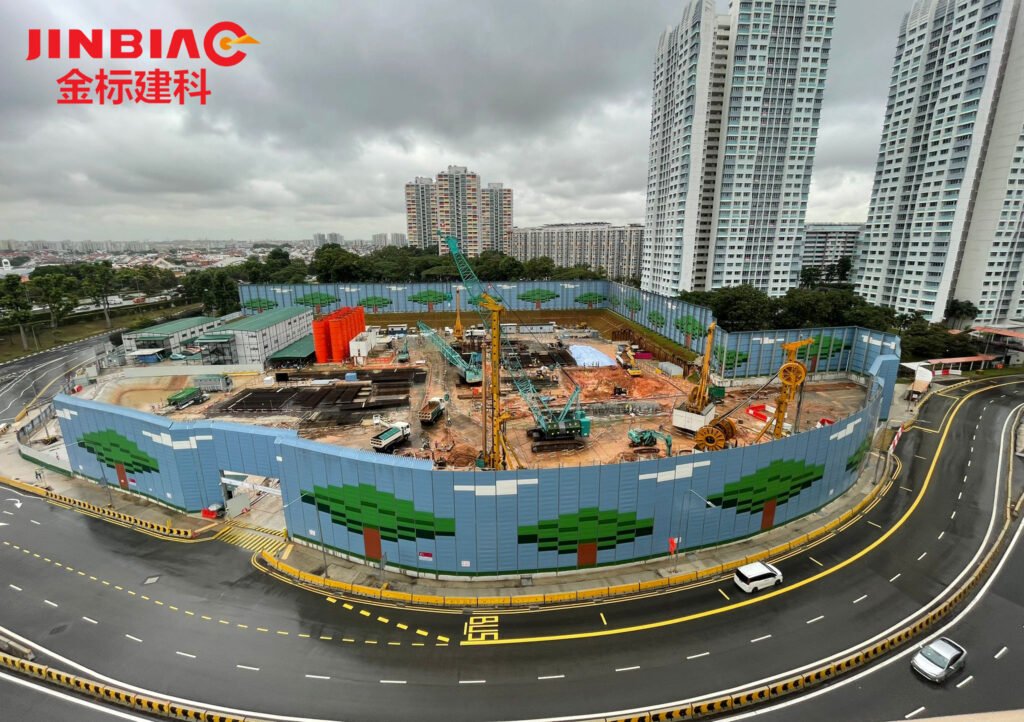
As urbanization and industrialization continue to transform our cities and towns, construction activities become increasingly common. While such activities are crucial for economic growth and development, they also come with environmental and social costs. One of the most significant environmental impacts of construction activities is noise pollution, which can have negative effects on public health and well-being.
To mitigate the impact of noise pollution, construction sound barriers have become a popular solution. But how do these barriers affect the environment? In this blog post, we explore the environmental impact of construction sound barriers and their effectiveness in reducing noise pollution.
- Noise reduction and environmental benefits
The use of construction sound barriers has been gaining popularity in recent years, with an increasing emphasis on noise reduction and environmental benefits. One of the primary reasons for implementing these barriers is to reduce the amount of noise pollution created by construction sites. The high levels of noise generated by construction activities can be a significant source of stress and discomfort for workers and people living or working in the surrounding areas.
By implementing sound barriers, the amount of noise can be significantly reduced, leading to a more comfortable and productive work environment. Furthermore, sound barriers can also help to mitigate the environmental impact of construction activities, such as reducing noise pollution and minimizing the amount of dust and debris that is released into the air.
Overall, the use of construction sound barriers can provide a range of environmental benefits and is an effective way to reduce noise pollution and minimize the impact of construction activities on the surrounding environment.
- Recyclable materials and construction waste
The use of recyclable materials and proper disposal of construction waste are critical factors that can significantly reduce the environmental impact of construction sound barriers. Recyclable materials, such as steel and aluminum, can be used in the construction of sound barriers to reduce the amount of waste generated in the manufacturing process. Additionally, using recycled materials in sound barrier construction can help to conserve natural resources and reduce greenhouse gas emissions.
Proper disposal of construction waste, including sound barrier debris, can also reduce the amount of waste that ends up in landfills. Implementing best practices, such as sorting waste materials and recycling where possible, can help to minimize the environmental impact of sound barrier construction. It is essential to incorporate sustainable and environmentally friendly practices into the construction industry to mitigate the impact of human activities on the environment.
- Energy efficiency and sustainability
Energy efficiency and sustainability are crucial considerations when it comes to the design and implementation of construction sound barriers. These barriers can have a significant impact on the environment, and it is essential to minimize this impact as much as possible. Energy-efficient materials and construction methods can be used to reduce the amount of energy required to produce and install sound barriers.
Additionally, the use of sustainable materials such as recycled steel, concrete, and wood can help to reduce the environmental impact of sound barrier construction. The incorporation of sustainable design features such as solar panels and green roofs can also help to reduce energy consumption and promote sustainability. By prioritizing energy efficiency and sustainability in the design and construction of sound barriers, we can reduce the environmental impact of these structures while still achieving their intended purpose of reducing noise pollution.
- Long-term cost savings and ROI
One of the most compelling arguments for investing in construction sound barriers is the long-term cost savings and return on investment (ROI) they provide. While the initial investment in noise barriers may seem steep, the benefits over time are significant. These barriers can last for decades, requiring minimal maintenance and replacement costs.
Additionally, the reduction in noise pollution can lead to improved community health, productivity, and property values. Taken together, these benefits can result in significant cost savings and increased ROI over the life of the sound barrier project. As such, it is important for decision-makers to consider the long-term financial implications of construction sound barriers when evaluating their environmental impact and overall effectiveness.
- Compliance with environmental regulations
Compliance with environmental regulations is a crucial aspect of the construction of sound barriers. In order to minimize the negative environmental impact of such projects, it is important to carefully consider and adhere to all relevant regulations and guidelines. Failure to comply with these regulations can result in fines, legal action, and damage to the environment. It is the responsibility of all parties involved in the construction process to ensure that all necessary permits and approvals are obtained, and that all work is carried out in accordance with the applicable regulations. This includes measures to manage and dispose of hazardous materials, protect water quality, and minimize noise pollution.
Hebei Jinbiao is a leading company in Noise Barrier products and Fencing products in Singapore. We guarantee to provide you with the most high-quality Sound Barrier and Fencing products along with our dedicated assistance. Do not hesitate to contact us. We are looking forward to helping you solve your noise issues, safety issues and protecting you from noise pollution as well as ensuring your safety.
